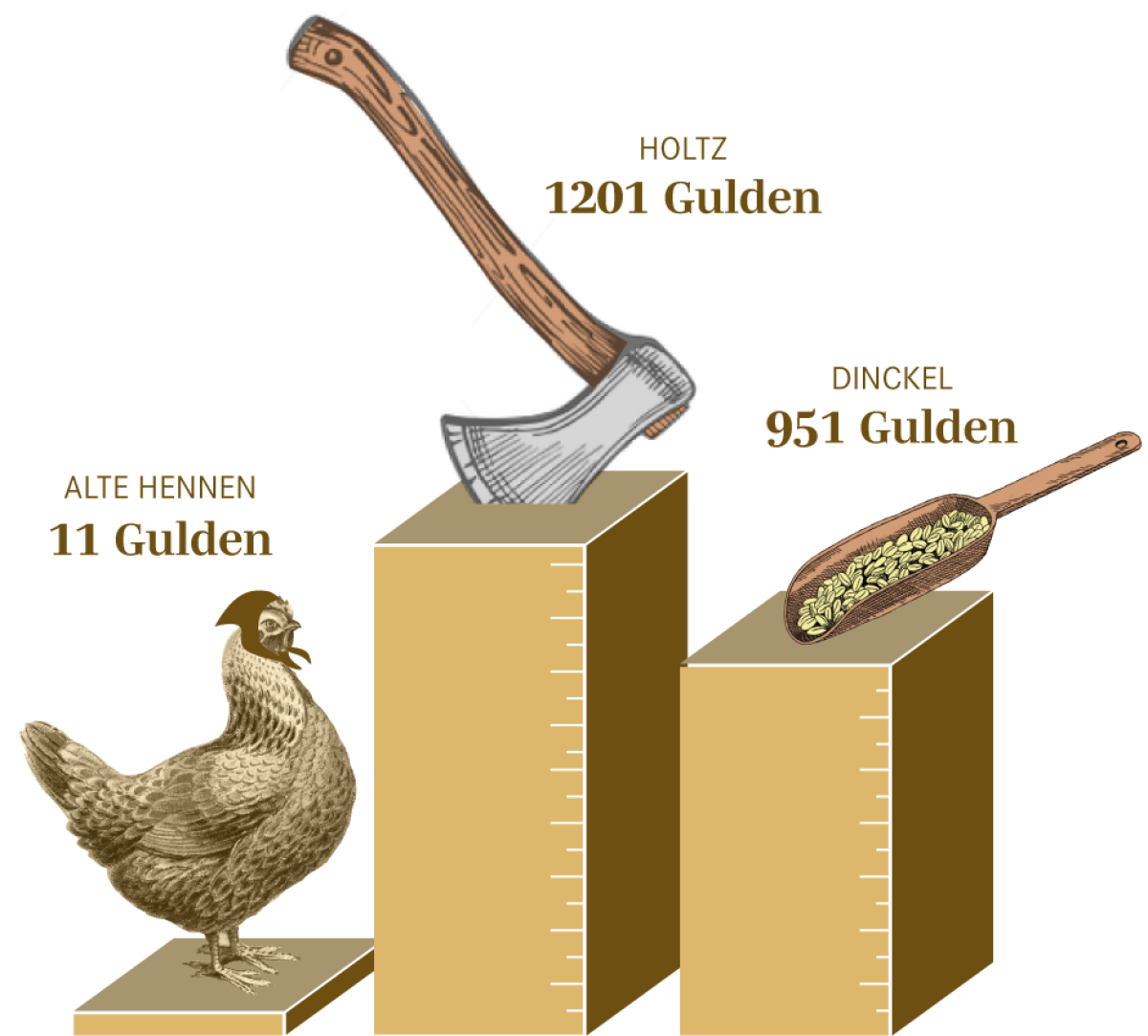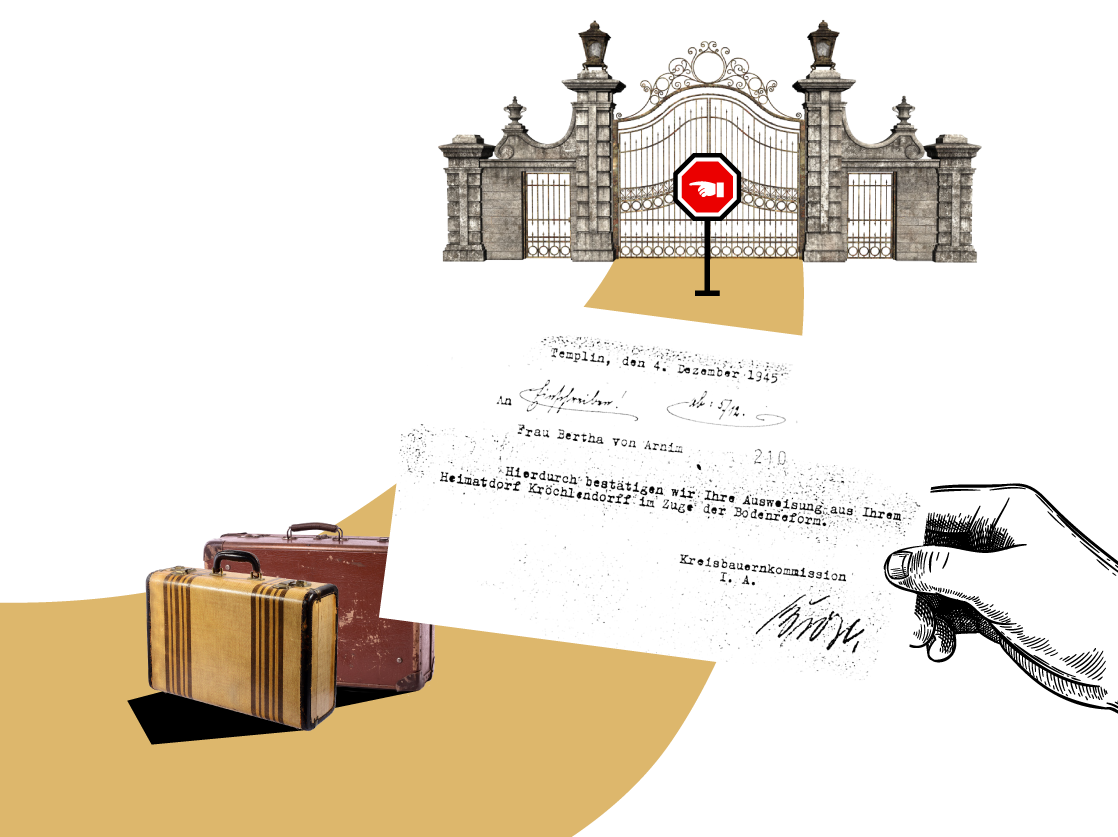Finally, it’s harvest time!
Johann Störrle, Day laborer
![]()
Ah, here comes the tenant from the Berg farm. He looks grim. Well, he is probably cross that it is time for his compulsory service with his horse. I can quite understand it, he is probably busy enough doing his own harvesting. But I am glad that it is harvest time at the estate. Even though I can almost pick for whom I work, I always go here. No other employer feeds me like they do.
I am not simply the accountant!
Chief administrator Joseph Behring
![]()
Please take note, I am the count’s chief administrator. I bear responsibility for the entire estate. I do the accounts for all the land and establishments under lease. I can tell you, there are days when I feel like the proverbial pen-pusher. But what is the use of all the effort when the times are so difficult and I have to discuss every single decision with the count. For he did study agricultural economics – and in-depth discussions take a lot of time!
They took what they could carry
Ursula von Klagenfeld, House owner
![]()
You know, my aunt used to live in a beautiful manor house in Brandenburg. I still remember how I used to visit her and play in the huge barn. But after the war, she had to pack whatever she could carry and leave quickly. They called it “Junker land into peasant hands”. She moved in with my husband and me – one has to take care of relatives! My aunt still hopes that she will get her manor back one day – but I am rather skeptical: I heard that orphans are living there now.

